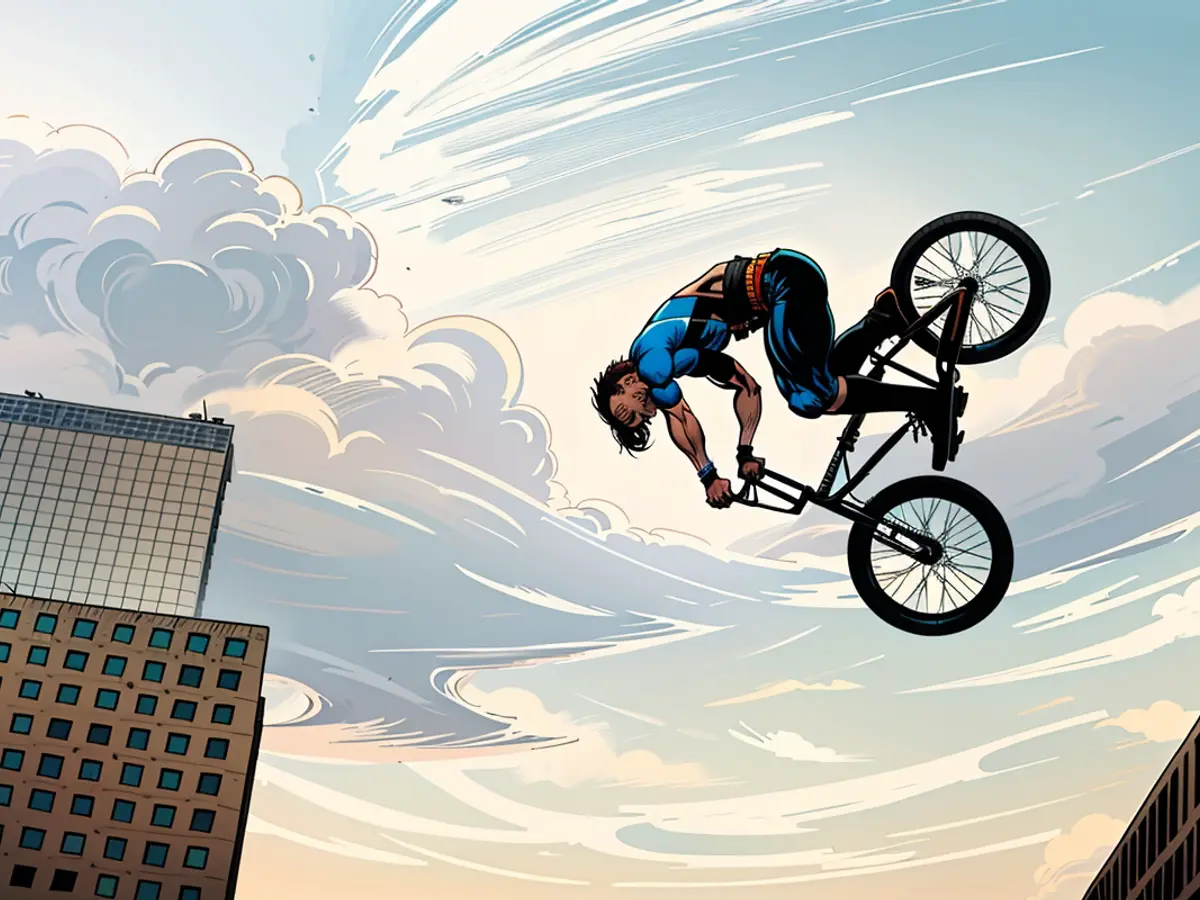Bicycle - Eurobike trade fair: It's about more than leisure
When the bike trade fair Eurobike in Frankfurt opens its doors next Wednesday, it's about more than just leisure time. The bike, as the experts gathered for the accompanying congress are well aware, can solve a significant portion of the traffic problems in cities and resolve the CO2 issues of the transportation sector.
A multitude of technical innovations will be presented to industry professionals from July 3 to July 7, and then to the general public over the weekend. In economically challenging times, there will be refined electric drives to see and test-ride, as well as agile new constructions for cargo bikes or digital solutions for the smaller problems of cycling life.
The Frankfurt Fair is coming to a difficult time for the industry. After the expired Corona boom, the German market was already marked by a significant oversupply of bikes in 2023, which did not meet sufficient demand in the weak economy. With over 1800 exhibitors, Eurobike has lost nearly 100 customers compared to the previous year, but has also gained new and large brands such as Giant or Kalkhoff, according to spokesperson Frank Gauß. With 150,000 square meters, the entire western fairground will once again be occupied.
Bio-Bikes generate little revenue
4 million bikes were sold in Germany in 2023, 600,000 fewer than in the previous year. For the first time, the majority (2.1 million units) had an electric drive. With an average price of around 3000 Euro, electric bikes are much more lucrative for manufacturers and dealers than traditional, muscle-powered "Bio-Bikes," which on average only generated 470 Euro in gross revenue across all sales channels, according to the Industry Association ZIV. The only exception are high-end racing bikes, which certainly serve a certain clientele as a status symbol.
Therefore, most eyes are focused on further developments in electric bikes. Major automotive suppliers like Bosch, Mahle, or ZF are refining essential components such as motors, batteries, and control systems with artificial intelligence applications. For example, Pinion's compact motor-gearbox unit is a treat for tech enthusiasts, which is also presented as an automatic this year. Expert Gunnar Fehlau from Pressedienst Fahrrad has also identified weight as a mega-trend. Few people need stronger motors and larger batteries in everyday life or on their commute. Instead, commuting bikes and cargo bikes should be light and manageable.
Early discount battle
But even in the current year, the weather-sensitive industry had bad luck with the weather in the lackluster spring. The discount battle has started earlier than usual. Renowned brands like Koga or Specialized have openly advertised price reductions in the market. Some specialist dealers are also advertising discounts. "2024 will also be another very challenging year," says Wasilis from the Future Bicycle Initiative, who expects a new normal level only for 2025.
Delivery bikes support business
A support remains the popular bike lease, which is mainly used by employees for the purchase of high-end and correspondingly expensive bikes. With around 790,000 lease bikes delivered to customers in 2023, there are now approximately 2 million on the roads. "We would be much worse in the crisis if there was no leasing," says Ralf Kindermann, industry expert and lease supervisory board member.
However, increasing headaches are caused by the growing number of lease returners who are not taken over by their lessors after three years. They currently do not achieve the expected resale values, Kindermann admits. Therefore, the offer of cheap and overhauled e-bikes from specialized used dealers is increasing. New niche markets for not quite new e-bikes are emerging.
Patrons should provide support
The bike boom of the Corona years is already over, as much is already clear at the Eurobike. A coalition of several transport associations has demanded stronger funding for sustainable mobility from the federal government. "It needs equivalent conditions on the roads for all traffic modes," it says in a position paper presented by the Allianz pro Schiene, Federal Association of Carsharing, Future Bike, and Association of German Transport Companies in Berlin on Monday. "For this, it needs, among other things, one billion euros per year for attractive and safe cycling infrastructure." Federal Transport Minister Volker Wissing (FDP) is joint patron, along with his Hessian colleague Kaweh Mansoori and Frankfurt's Mayor Mike Josef (both SPD), of the Eurobike.
- Despite the economic challenges, the Frankfurt Trade Fair is still hosting Eurobike, with over 1800 exhibitors presenting innovative electric drives and digital solutions for the bike industry.
- In the weak economy, the German market is struggling with a significant oversupply of bikes, leading to fewer sales compared to the previous year.
- Bio-Bikes, which are traditional, muscle-powered bicycles, account for a small portion of the revenue in the bike industry, generating an average of only 470 Euro per unit.
- The future of the bike industry lies in electric bikes, with major automotive suppliers refining essential components and experts focusing on weight reduction for commuting and cargo bikes.
- The weather-sensitive industry has seen bad luck with the weather this year, leading to an early discount battle among renowned brands.
- Bike leasing remains popular, with around 2 million lease bikes on the roads in Germany, and a need for stronger funding for sustainable mobility from the federal government.
- The growing number of lease returners who are not taken over by their lessors after three years is causing headaches in the bike industry, leading to the rise of used e-bike markets.
- The bike boom of the Corona years has ended, and a coalition of transport associations is demanding stronger funding for sustainable mobility from the federal government to improve cycling infrastructure.








